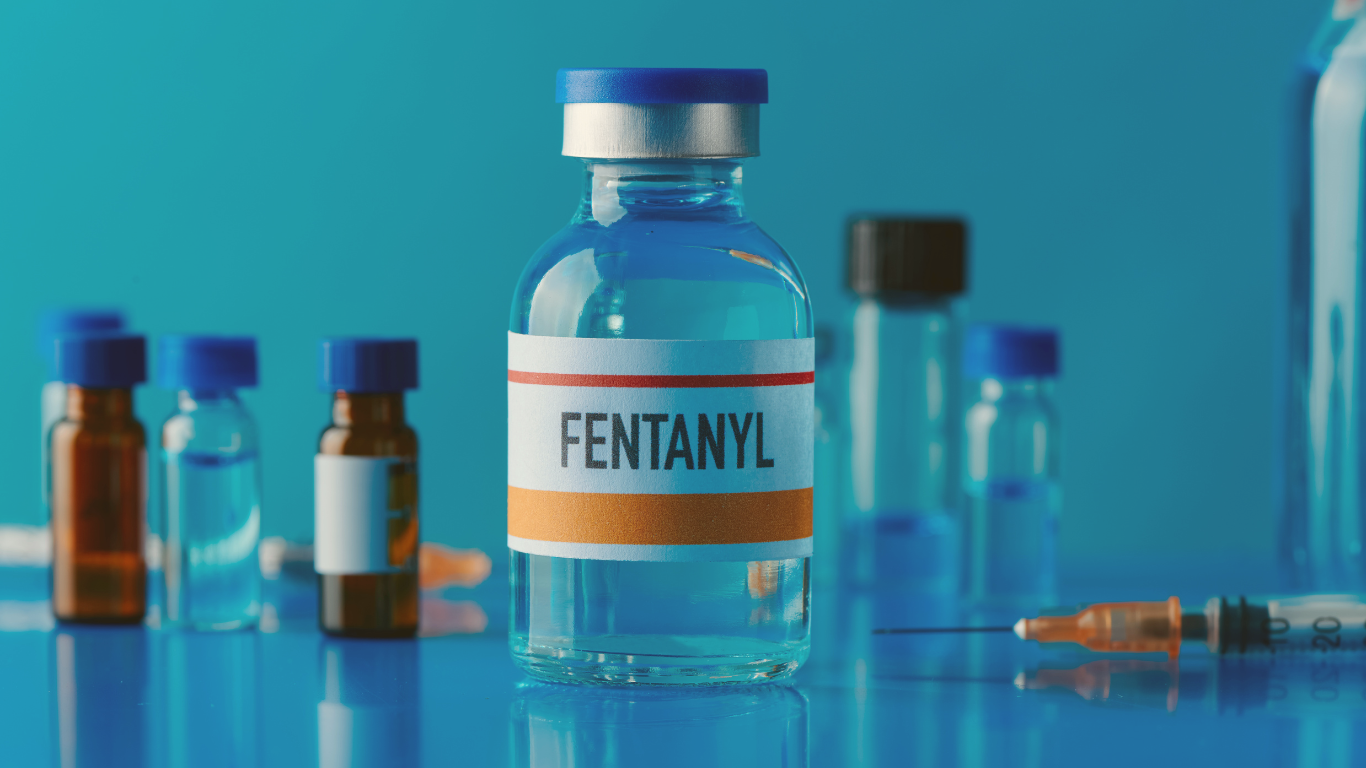Fentanyl Addiction Treatment Center in Atlanta, GA

Fentanyl addiction has reached epidemic proportions in the Atlanta area, with synthetic opioids becoming Georgia’s leading cause of accidental drug-related overdose deaths. At MARR Treatment Centers’ fentanyl addiction treatment in Atlanta, GA, we understand the devastating impact this powerful substance has on individuals and families throughout our community.
Our specialized fentanyl addiction treatment program combines evidence-based approaches with compassionate care to guide clients through every stage of recovery.
With death rates from fentanyl increasing by more than 200% in Georgia from 2010-2020, seeking professional treatment has never been more crucial for those struggling with addiction to this potent opioid.
Our team of experienced addiction specialists is dedicated to providing personalized care that addresses both the physical dependence and underlying psychological factors that contribute to substance use disorders.
Why Choose MARR Treatment Centers in Atlanta?
At MARR Addiction Treatment Centers, we stand apart in the addiction treatment landscape through our comprehensive model developed over more than four decades of specialized care.
Founded in 1975, we have established a treatment philosophy that differs significantly from conventional rehabilitation approaches in several key areas. Our distinctive methods emphasize long-term recovery through gender-specific programming, community-based healing, and a multiphased treatment structure that gradually transitions clients back to independent living.
Our therapeutic community model also provides valuable preparation for post-treatment life by requiring clients to manage household responsibilities, navigate interpersonal dynamics, and practice recovery principles in various situations.
This practical experience helps bridge the gap between treatment and independent living, addressing a common challenge in addiction recovery – the difficulty of transferring skills learned in treatment to real-world contexts.
Creating a microcosm of society within our treatment setting provides opportunities to practice recovery skills in situations that approximate everyday life challenges.
Our methods differ from traditional rehabilitation centers, and we believe our distinctive elements contribute to better treatment outcomes for our clients.
What Is Fentanyl?
Fentanyl is a powerful synthetic opioid that was initially developed for legitimate medical purposes, primarily to manage severe pain in cancer patients and during surgical procedures. In medical settings, fentanyl may be administered through various routes, including injections, transdermal patches, and lozenges, with precise dosing to maximize pain relief while minimizing risks.
The medication’s exceptional potency allows it to provide relief in cases where other analgesics prove insufficient, making it an essential tool in pain management for specific medical conditions. However, this same potency creates serious dangers when fentanyl is misused or taken without medical supervision, as even minute amounts can cause respiratory depression and death.
The physiological effects of fentanyl result from its interaction with opioid receptors in the brain and throughout the body, particularly those involved in pain perception and reward. When fentanyl binds to these receptors, it triggers a cascade of neurochemical changes, including a substantial release of dopamine in the brain’s reward circuit.
This flood of dopamine produces intense euphoria and reinforces drug-seeking behavior, establishing powerful pathways in the brain that drive continued use despite negative consequences.
With repeated exposure, the brain adapts to fentanyl’s presence through neuroadaptation, reducing natural dopamine production and altering receptor sensitivity in ways that contribute to dependence and withdrawal symptoms when the drug is discontinued.
Understanding Fentanyl Addiction
Fentanyl addiction affects individuals across all demographic and socioeconomic boundaries in Atlanta and throughout Georgia. The extreme potency of this synthetic opioid—50 times stronger than heroin and 100 times more powerful than morphine—creates a high risk for both addiction and overdose.
Understanding the nature of fentanyl addiction is essential for effective intervention and treatment, as this particular substance presents unique challenges due to its potency and the severity of withdrawal symptoms it produces.
The rapid development of tolerance to fentanyl means that users require increasingly larger doses to achieve the same effect, accelerating the cycle of addiction and dramatically increasing overdose risk with each use.
The impact of fentanyl addiction extends far beyond the individual user, affecting families, workplaces, and entire communities. Relationships deteriorate as the pursuit of fentanyl takes precedence over responsibilities and previously valued connections.
Signs and Symptoms of Fentanyl Addiction
Physical indicators of fentanyl addiction often provide the most visible evidence of a developing problem, though they may not appear until the addiction has significantly progressed.
Individuals may experience the following:
- Constricted pupils
- Respiratory depression
- Changes in appetite and weight
- Sleep disturbances
- Drowsiness
Physical dependence produces intense fentanyl withdrawal symptoms when fentanyl is not available, including the following:
- Muscle aches
- Bone pain
- Excessive sweating
- Nausea and vomiting
- Diarrhea
Behavioral changes associated with fentanyl addiction typically emerge before the more obvious physical symptoms, providing potential opportunities for early intervention.
Signs include the following:
- Withdrawing from family relationships and previously meaningful friendships
- Changes in social circles
- Performance at work or school typically deteriorates
- Secretive behavior becomes increasingly common as the addiction progresses
- Financial problems
The psychological effects of fentanyl addiction transform the individual’s mental and emotional landscape in profound ways that affect all aspects of functioning.
Fentanyl abuse can lead to the following:
- Mood instability
- Cognitive function deteriorates
- Motivation for non-drug-related activities diminishes
- Developing increasingly paranoid or anxious thinking
- Psychological dependence

Our Fentanyl Addiction Treatment Programs in Atlanta, GA
At MARR Treatment Centers, we have developed a comprehensive fentanyl addiction treatment program that addresses both the physical dependence and the psychological factors that contribute to substance use disorders.
Our integrated approach combines evidence-based medical interventions with therapeutic modalities that promote healing on multiple levels—physical, emotional, cognitive, social, and spiritual.
We recognize that recovery from fentanyl addiction presents unique challenges due to the drug’s extreme potency and the severe withdrawal symptoms associated with discontinuation.
Partial Hospitalization Program (PHP)
PHP is a structured, intensive treatment program that you attend for several hours a day, multiple days a week.
It’s more intensive than traditional outpatient therapy but less intensive than inpatient hospitalization. It’s designed for individuals who need more care but can still live at home.
Intensive Outpatient Program (IOP)
IOP is another type of structured treatment program, but it typically involves fewer hours per week than a PHP. IOPs are designed for individuals who need more support than traditional outpatient therapy but don’t require the intensity of a PHP or inpatient care.
Outpatient Program (OP)
This program provides traditional therapy or counseling sessions in which you meet with a therapist or counselor regularly (e.g., weekly or bi-weekly).
It’s the least intensive care at our rehab center and is suitable for individuals who need ongoing support but generally function well in their daily lives.
Therapeutic Interventions
Clients engage in a structured therapeutic program that forms the core of our addiction treatment approach at MARR Treatment Centers.
- Individual therapy sessions with licensed therapists provide a private space to explore personal issues contributing to addiction, process difficult emotions, and develop personalized coping strategies for managing triggers and cravings without resorting to substance use.
- Cognitive Behavioral Therapy (CBT) helps clients identify and modify dysfunctional thought patterns that contribute to addictive behaviors, replacing them with healthier perspectives that support recovery and emotional well-being.
- Dialectical Behavior Therapy (DBT) teaches critical skills for emotional regulation, distress tolerance, interpersonal effectiveness, and mindfulness, providing practical tools for navigating challenging situations without relapsing.
- Trauma-focused therapies such as Eye Movement Desensitization and Reprocessing (EMDR) address the significant link between traumatic experiences and substance use disorders, helping clients process and integrate these experiences in ways that reduce their power to trigger addictive behaviors.
- Group therapy sessions provide essential peer support and shared learning experiences that complement individual therapeutic work. In these facilitated groups, clients benefit from the insights and experiences of others facing similar challenges, reducing feelings of isolation and shame that often accompany addiction.
- Family therapy sessions acknowledge the systemic nature of addiction, involving loved ones in the recovery process to heal damaged relationships, improve communication patterns, and develop healthier family dynamics that support rather than undermine recovery efforts.
- Mindfulness meditation practices help clients develop greater awareness of their thoughts, emotions, and physical sensations without judgment, improving self-regulation and reducing reactivity to triggers.
- Physical activities such as yoga, fitness training, and recreational therapies improve physical health while releasing natural endorphins that improve mood and reduce cravings.
Aftercare Planning
We recognize that recovery from fentanyl addiction extends far beyond the period of formal treatment, requiring ongoing support and continued growth to maintain the progress achieved during the intensive treatment phase.
Comprehensive aftercare planning begins early in the treatment process, with increasing focus as clients approach completing their primary program. Each client works with their primary therapist to develop a detailed continuing care plan that addresses their needs, challenges, and goals for ongoing recovery in their home environment.
- Regular check-ins with MARR Treatment Centers’ staff during the transition period help identify and address challenges early, allowing adjustments to the aftercare plan when needed.
- Alumni programming provides an ongoing connection to our recovery community through support groups, social events, service opportunities, and mentorship relationships that reinforce recovery principles and maintain supportive connections.
- Family involvement continues through designated family programs that provide education, support, and guidance as family systems adjust to the changes during recovery.
- Relapse prevention planning addresses each client’s specific triggers and high-risk situations, developing detailed strategies and coping skills for managing these challenges without returning to substance use.
This comprehensive approach to continuing care acknowledges recovery as a lifelong journey rather than a destination, providing the ongoing support needed to navigate the challenges and celebrate the achievements that characterize successful long-term recovery from fentanyl addiction.
Start Your Fentanyl Addiction Treatment Journey Today
The journey to recovery from fentanyl addiction presents significant challenges but also offers the possibility of profound transformation and renewed well-being. At MARR Treatment Centers, we have witnessed countless individuals reclaim their lives from the grip of addiction through commitment to the recovery process and engagement with effective treatment.
We understand that seeking substance abuse treatment represents a courageous step, often taken at a moment of crisis or desperation. We honor that courage by providing the highest quality care possible in a compassionate, nonjudgmental environment.
Call us today at 678-884-4080 to start a treatment plan to begin your wellness and recovery journey.
